Our Vision
In our science curriculum we want our pupils to recognise the importance of science. To see the value of scientists both in the past and in the world in which they live today. Now more than ever children need to be exposed to the wonder of science and its vital role in preserving human life. Science is about developing children’s ideas and ways of working that enable them to make sense of the world from the youngest of ages within school. Through investigation pupils will experience a sense of excitement and curiosity about the world around them.
Our Aims
- Foster respect for science and see its importance in the world.
- Encourage enthusiasm and an enquiring mind for scientific ideas.
- Provide opportunities for children to acquire practical scientific skills.
- Develop the use of investigation – including observing, measuring, predicting, hypothesising, experimenting, communicating, interpreting, explaining and evaluating.
- Encourage children to ask and answer scientific questions.
- Promote the development of scientific concepts and their ability to apply them in everyday contexts.
- Help the children use scientific vocabulary appropriately and within the correct context.
- Provide children with a stimulating and positive experience of science.
- Enable children to build on their natural curiosity and develop a scientific approach to problem solving.
Our Curriculum
Early Years
In the EYFS the children have access to stimulating learning experiences. The curriculum fosters their natural curiosity in exploring the world around them through play based learning. Through observations pupils’ recognition of animals and plants is encouraged alongside their ability to talk about why some things occur and recognise changes. Key scientific vocabulary is introduced. This all contributes to laying a secure foundation for the development of scientific skills in later Key Stages.
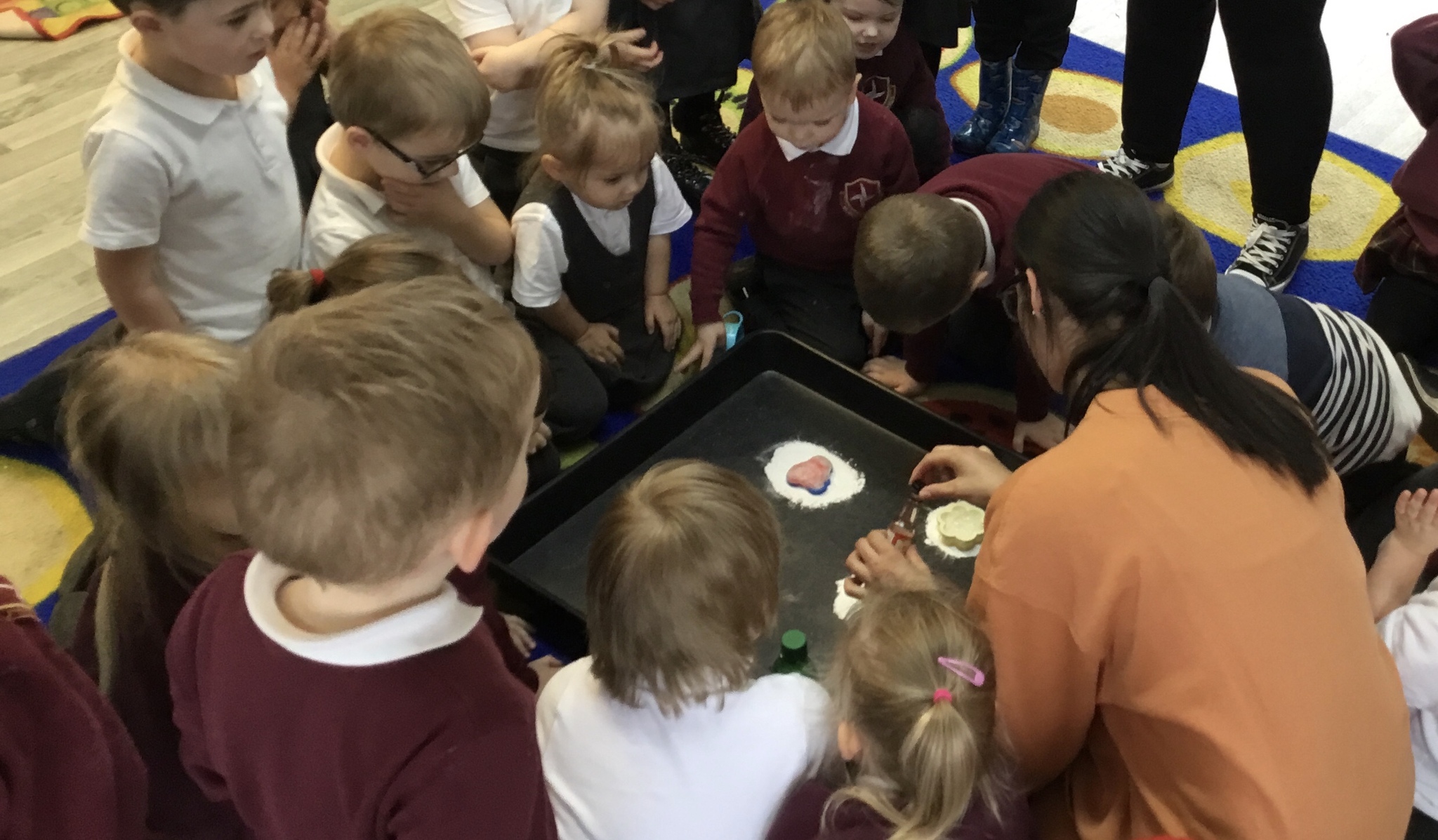
Key Stage One
In KS1, pupils study Plants and Animals, looking at being able to identify different living things and recognising what plants and animals need to survive. Pupils also begin to recognise the uses and properties of Everyday Materials. Pupils explore Seasonal Change and investigate how it impacts on our way of life; how the weather affects the environment in which we live. Pupils are introduced to the concept of Working Scientifically by being able to follow practical scientific methods, including asking questions, making observations, performing simple tests, gathering data and using their observations to suggest answers. Correct scientific vocabulary is modelled and built upon in each year group.
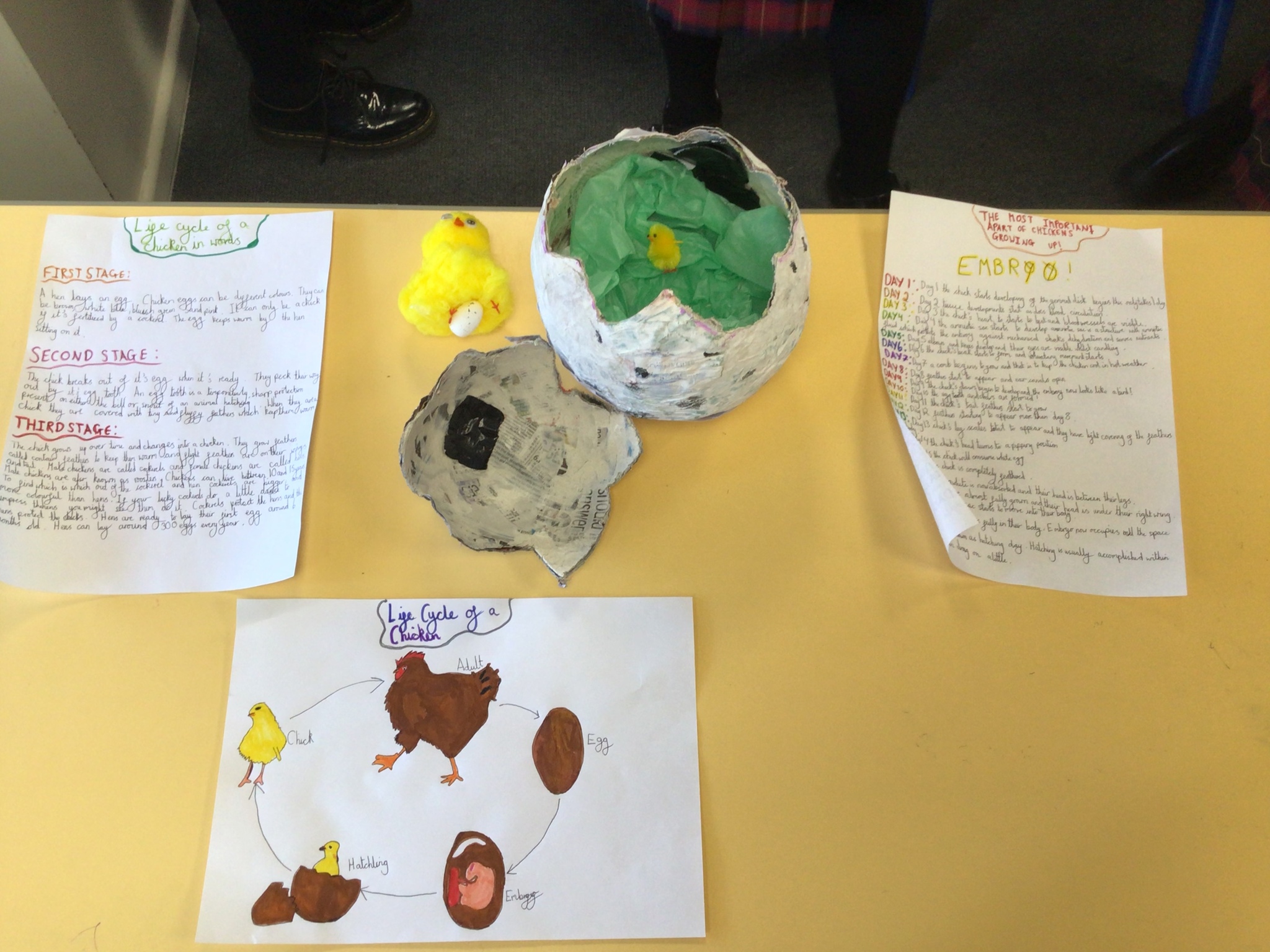
Key Stage Two
In KS2 pupils progress their scientific skills by planning, carrying out and analysing investigations. The pupils continue to improve their use and understanding of scientific vocabulary. Pupils continue to explore the diverse range of Living Things and their Habitats, including looking at how Animals including Humans move and digest. They are introduced to the physics of Light, Magnets and Electricity. Pupils also build on their understanding of materials by studying Rocks and examining the States of Matter. Pupils understanding of Physics, Biology and Chemistry is expanded through studying: Forces, Changing Materials, Electricity, Space, Light, Living Things, Evolution, Life Cycles and Circulation. They further enhance their Scientific Skills and knowledge of real scientist, to be able to plan and carry out a variety of enquiry types using equipment with greater accuracy and precision. Pupils increasingly become confident at reporting their results and reaching conclusions based on this. They use scientific evidence to support arguments and make predictions.
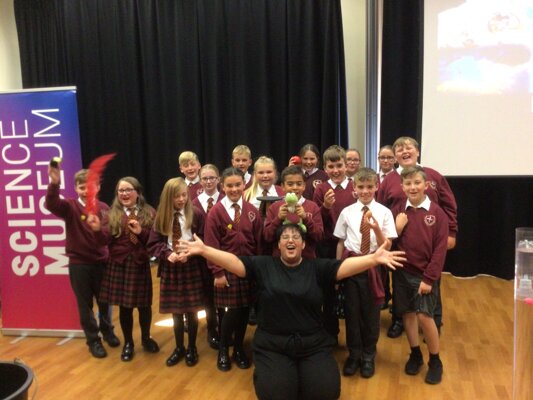
Enrichment
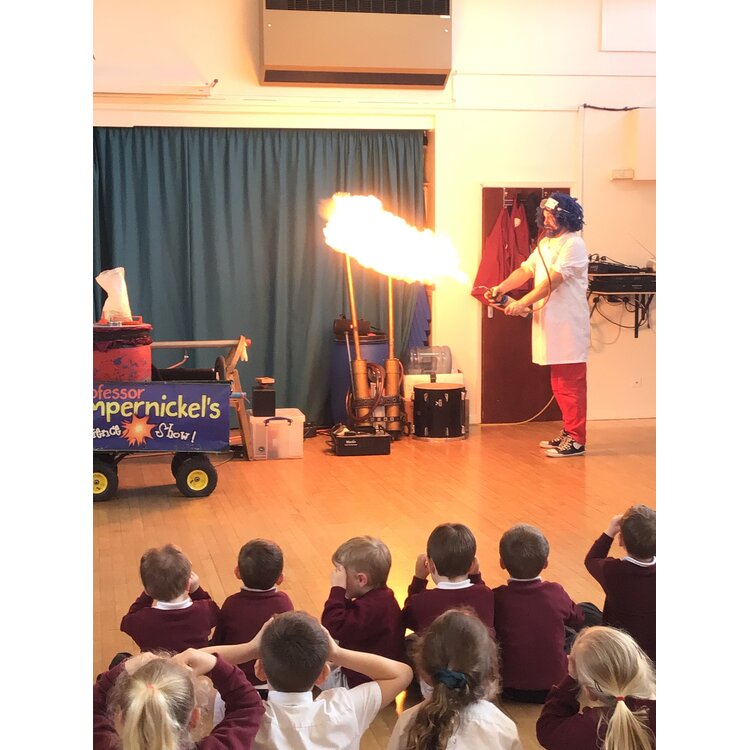
Our teaching of science is enriched with visits and talks with Stem Ambassadors. Careers fairs for Year 6 seek to demonstrate the far reaching capabilities of Science within the workplace. Continued involvement with the React Foundation gives the children regular access to exciting Science workshops and roadshows led by the British Science Museum. These opportunities seek to inspire and foster more enjoyment of the subject. Visits from outside speakers such as Zoolab, Living Eggs and The Science Viking enable the children to experience animals and science up close. Visits to Brockhole, Whinlatter and Farm to Fork help to provide children with the opportunity to see plants and animals within their natural habitats. Field study trips with the West Cumbria Rivers Trust enable the children to see how the local environment eco system plays an intrinsic role in the survival of species. The imprint of a practical learning experience holds power to make learning meaningful and encourage the children’s natural curiosity further. The use of science laboratory coats within school is to help the children disassociate from the cartoon image of a scientist and promote a professional scientific approach during investigative work.
Science Curriculum Overview
Related News

Science Week 2024 starts with a bang!
British Science Week 13th March - 17th March
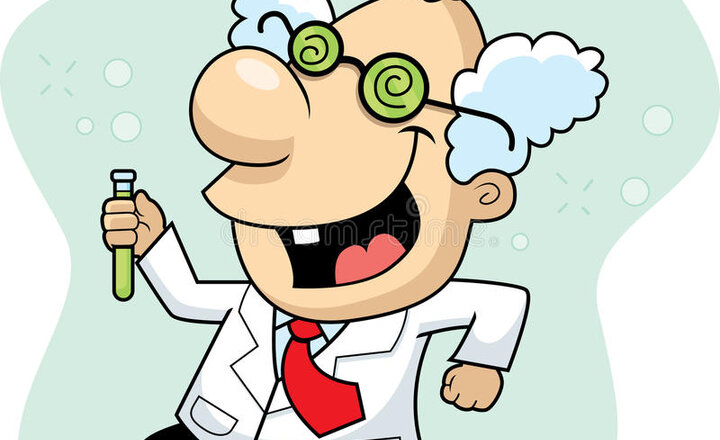
Working Scientifically Day - Friday 17th March
Related Blog Posts
Year 3 use Force meters to measure in Newtons
Year 3 were using force meters to measure how many Newtons it takes to lift an object. They recorded their results and worked really in pairs.
Investigating Sugar
Sugar Investigation: Orange Juice vs Coca-Cola!
This week, Year 6 scientists have been busy investigating the amount of sugar in freshly squeezed orange juice compared with Coca-Cola Original.
Before starting the experiment, the children learned how to devise a fair test. They began by…
Year 3 Science Investigation
Year 3 were investigating which surface caused the greatest friction on the car wheels. We tried Lino, carpet and tarmac. We have grass and wood to test on Monday.
Which surface will the car travel furthest on? The surface with the least friction. Which one will it be?
To be…
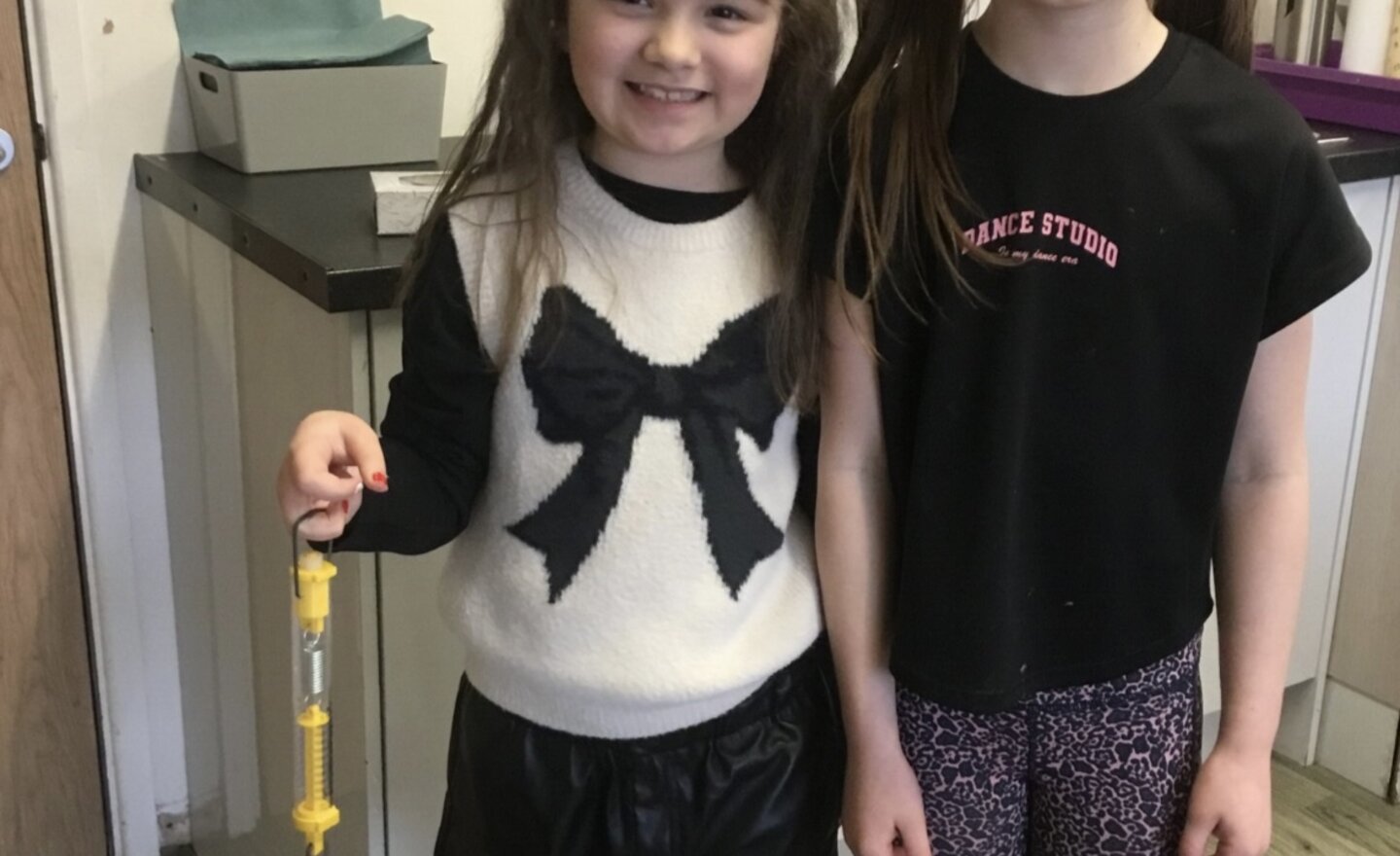
.jpeg)
.jpeg)